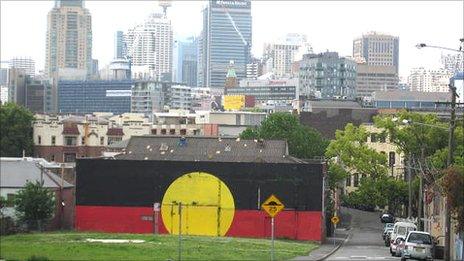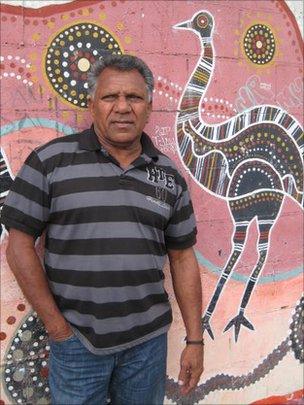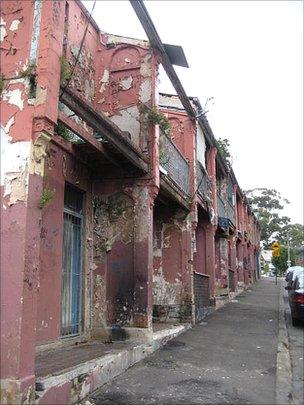A run-down housing estate in Sydney that has become a symbol of Aboriginal disadvantage is to be torn down in an effort to revitalise the area.
www.bbc.com
Sydney's Aboriginal ghetto to be bulldozed
- Published
11 October 2010
Share
Image caption,
Many of the houses on the estate are derelict and its open spaces are littered and overgrown
By Phil Mercer
BBC News, Sydney
A run-down housing estate in Sydney that has become a symbol of Aboriginal disadvantage is to be torn down in an effort to revitalise an area that was once at the heart of indigenous political activism.
"The Block", as it is known, began as a bold social experiment in the 1970s.
The government of Gough Whitlam, stung by rising Aboriginal homelessness and discrimination by landlords, bankrolled the purchase of property by indigenous groups in the inner city district of Redfern.
The site quickly became a magnet for Aborigines from around Australia, but was infiltrated and eventually overrun by heroin dealers in the 1990s.
Image caption,
Resident Mick Mundine has been championing the redevelopment for more than a decade
The Block has never recovered. Many of its terrace houses are derelict and its open spaces littered and overgrown.
It stands in the shadow of the proud skyline of central Sydney: the haves and have-nots of Australia's most prosperous city separated by a short walk.
In February 2004, the police were bombarded with petrol bombs by Redfern residents, enraged after 17-year-old Thomas Hickey died accidentally during an alleged police chase.
The disturbances left dozens injured and cemented the Block's violent reputation.
"It is time for changes. This bit of land is like the Aboriginal graveyard. People come here to shoot up, to have drugs. In other words, they come here to die," said Mick Mundine, the head of the Aboriginal Housing Company, who has championed the redevelopment for more than a decade.
"It is time for us to build this new community.
"It is not going to be perfect as everybody knows there is not a perfect community anywhere."
But the demolition could signal a fresh start that could bring to an end the cycle of crime and unemployment.
Deep suspicion
The final draft has yet to be approved but the plan is to build 62 apartments for indigenous residents as well as student accommodation, a gym and a cultural arts centre.
Tenants with drug-related convictions won't be allowed in.
The area will be renamed The Pemulwuy Project after a celebrated indigenous warrior.
Ray Minniecon, a local pastor, believes the rebuilding will harness the area's unique spirit and provide business opportunities: "It is a delicate balance as to how you maintain your history, your culture, your identity. The ways in which the Block has been redesigned encompasses all those kinds of challenges.
"It gives us for the first time in this country an opportunity to put in place within a city a design that comes from the Aboriginal people, for Aboriginal people."
Image caption,
The run-down estate became a magnet for drug users and dealers
The bulldozers could move in within months, and while the transformation of the Block is seen by some residents as a step forward, others view the scheme with deep suspicion.
"It can't stay as it is," says Bruce Ellis. "It is progress and is going to be a good thing."
However, his friend, Peter, is not so sure.
"I was taken from my parents when I was eight. I ran away from that institution and settled on the Block. And for all the different tribes from around New South Wales, this was the meeting place.
"But now with this new redevelopment, that's going to change everything," he says.
Others believe that once the remaining tenants have been moved, the Block will lose its Aboriginal heart forever.
"By the time the redevelopment happens, we are wondering who is going to be housed here," said Margarita Guevara.
"I think they are trying to move our people out of here and create urbanised suburbia for the white fellas."
The Aboriginal Housing Company has insisted that indigenous residents will be invited back when the builders leave.
As one elder told the BBC, the plan to revive the Block will allow the community to pursue "the dream of living an Aboriginal life in a white man's world".








